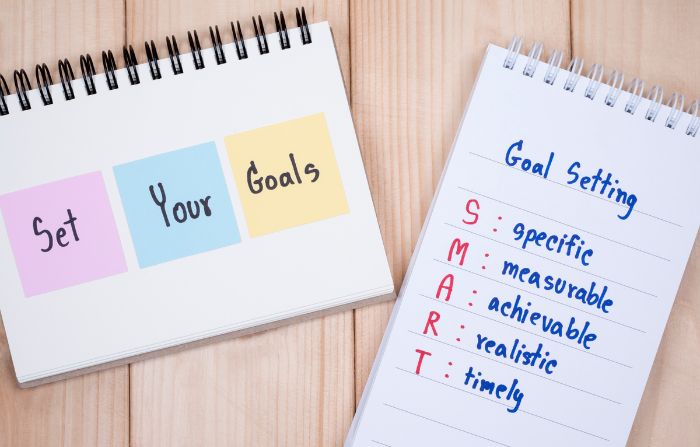In today’s competitive sales landscape, mastering sales coaching has never been more critical. A well-coached sales team can significantly accelerate revenue growth, improve customer satisfaction, and create a thriving work culture that attracts and retains top talent. This guide will walk you through the essential aspects of effective sales coaching, from setting clear goals and metrics to using data-driven insights, incorporating AI-driven tools, and nurturing a growth mindset. By mastering these techniques and leveraging sales coaching programs, you can empower your team to reach new heights, close deals faster, and contribute to sustainable revenue growth.
What is Sales Coaching?
Sales coaching is a dynamic process that involves training, guiding, and supporting sales teams to enhance their skills and performance. It’s a crucial aspect of sales management that goes beyond merely hitting quotas. Effective sales coaching helps sales reps develop the competencies and confidence they need to excel in their roles. This process can be facilitated by sales managers, sales leaders, or external coaches and can be delivered through various methods, including one-on-one coaching sessions, group training, and online resources.

Sales coaching is not a one-size-fits-all approach. It requires a tailored strategy that considers the unique strengths and weaknesses of each sales rep. By focusing on individual development, sales coaching fosters a culture of continuous improvement and learning within the sales team. This personalized approach ensures that each team member receives the support they need to overcome challenges and achieve their full potential.
The Importance of Sales Coaching in Revenue Growth
Sales coaching is more than just guiding a team toward quotas—it’s about developing each team member’s potential to maximize overall performance and sales outcomes. A well-structured coaching process helps identify areas for improvement, clarifies goals, and provides ongoing support that keeps sales reps motivated and on track. Effective sales coaching tips can enhance team productivity and improve sales performance.
Why Sales Coaching Matters
Higher Revenue: Effective coaching leads to better-trained reps who can close deals faster and handle objections with confidence, driving revenue growth.
Increased Team Retention: Sales teams with strong coaching support are more likely to stay engaged and loyal, reducing turnover costs.
Better Customer Relationships: Skilled reps understand customer needs better, leading to improved relationships and long-term loyalty.
Enhanced Skill Development: Coaching builds skills over time, making reps more adept at navigating complex sales situations.
In a recent study, sales teams with regular coaching saw a 28% increase in win rates compared to teams without structured coaching. This measurable impact on performance demonstrates that a strong coaching program, utilizing effective sales coaching techniques, is an investment that directly translates to revenue gains.
Benefits of Sales Coaching
Sales coaching offers numerous benefits that can significantly impact both sales teams and the broader organization. Here are some of the most significant advantages:
- Improved Sales Performance: Through targeted coaching, sales reps can develop the skills and knowledge necessary to close more deals and consistently achieve their sales targets. This improvement in individual performance translates to better overall team results.
- Increased Revenue: By enhancing the effectiveness of sales reps, sales coaching directly contributes to increased revenue and business growth. Well-coached reps are more adept at identifying and seizing sales opportunities.
- Enhanced Customer Satisfaction: Sales coaching equips reps with the skills needed to provide exceptional customer service. This leads to higher customer satisfaction and loyalty, as reps can better understand and meet customer needs.
- Better Team Morale: A supportive coaching environment boosts the confidence and motivation of sales reps. This positive atmosphere fosters better team morale, leading to a more cohesive and productive work environment.
Core Principles of Sales Coaching Mastery
To achieve mastery in sales coaching, you need to build a foundation on clear principles and actionable strategies. The following principles will guide you toward creating an impactful coaching program that aligns with your team’s goals.
Set Clear, Measurable Goals
Start by setting specific, measurable goals for each sales rep as part of your sales coaching program. Defining what success looks like allows you to track progress and make informed adjustments as needed.

Utilize Data-Driven Insights
Leveraging data in sales coaching enables more objective, targeted feedback. With data-driven insights, managers can identify patterns in performance and focus on high-impact areas for each rep.
Offer Consistent Feedback and Follow-Up for Sales Managers
Regular check-ins and follow-ups ensure that feedback is understood and applied. Consistent coaching builds trust, keeps reps accountable, and allows for continual growth and adjustment.
Focus on Skill Development Over Metrics Alone
While hitting sales targets is essential, incorporating sales training into your strategy can prevent burnout. Prioritize skill development, such as communication, negotiation, and emotional intelligence, to create well-rounded sales professionals.

Foster a Growth Mindset
Encourage reps to embrace challenges and view feedback as a pathway to improvement. A growth mindset in sales teams promotes resilience and the willingness to learn from mistakes, ultimately leading to better long-term performance.
Techniques for Effective Sales Coaching
Mastering sales coaching requires specific techniques that make each session impactful and actionable. Here are some essential methods for driving real change in your team’s performance.
1. Active Listening
One of the most powerful techniques in coaching is active listening. By truly hearing each rep’s challenges and needs, you create a supportive environment where they feel understood and valued. Active listening builds trust and opens the door for honest feedback and guidance.
2. Role-Playing and Scenario Practice
Sales calls are a crucial aspect of a sales rep’s performance, and role-playing allows them to practice handling various situations, from overcoming objections to managing difficult clients. This hands-on approach builds confidence, making reps better prepared for real-world interactions.
3. Question-Based Coaching
Instead of telling reps what to do, use open-ended questions that guide them to self-discovery and problem-solving. This empowers reps to think critically, which reinforces learning and decision-making.
4. Gamification to Boost Engagement
Incorporating gamification into coaching sessions can increase engagement and motivation. Gamified elements like scoreboards, badges, and competitions create a friendly, competitive environment that makes achieving targets more enjoyable.

5. Personalized Feedback and Goal Alignment
Sales coaches play a crucial role in providing feedback that aligns with each rep’s individual goals and development areas for impactful coaching. Personalized coaching sessions cater to unique needs, ensuring that feedback is relevant and actionable.
Sales Coaching Best Practices
To maximize the effectiveness of your sales coaching efforts, it’s essential to follow best practices. Here are some of the most effective strategies:
- Set Clear Goals and Objectives: Before launching a sales coaching program, establish clear goals and objectives. This clarity helps focus coaching efforts and provides a benchmark for measuring success. Define what success looks like for your team and individual reps.
- Use Data and Analytics: Leverage sales data and analytics to gain valuable insights into performance. This information can help identify areas for improvement and track progress over time. Data-driven coaching ensures that feedback is objective and targeted.
- Focus on Behavior Change: Effective sales coaching goes beyond imparting knowledge; it aims to change behavior. Help sales reps develop new skills and habits that will enhance their performance. This might involve role-playing exercises, scenario-based training, and continuous practice.
- Provide Feedback and Support: Regular feedback and support are critical components of successful sales coaching. Constructive feedback helps reps understand their strengths and areas for improvement, while ongoing support keeps them motivated and on track.
- Use a Variety of Coaching Methods: Different sales reps respond to different coaching methods. Incorporate a mix of one-on-one coaching, group training sessions, and online resources to cater to diverse learning styles and preferences.
Overcoming Common Sales Coaching Challenges
Sales coaching can present several challenges, especially for new sales managers or leaders. Here are some common obstacles and strategies to overcome them:
- Limited Time and Resources: Many sales managers struggle to find the time and resources needed for effective coaching. To address this, prioritize your coaching efforts and focus on the most critical skills and knowledge. Utilize technology and tools to streamline the coaching process and make the most of available resources.
- Resistance to Change: Some sales reps may resist changes to their sales approach or habits. Overcome this by clearly explaining the benefits of change and providing support and feedback to help reps adapt. Highlight success stories and examples of how new approaches have led to better results.
- Difficulty in Measuring Success: Measuring the success of a sales coaching program can be challenging. Set clear goals and objectives from the outset and use data and analytics to track progress. Regularly review performance metrics and adjust your coaching strategy as needed to ensure continuous improvement.
Leveraging AI-Powered Sales Coaching Tools
In recent years, AI-powered tools have transformed the sales coaching process. By analyzing data and providing real-time insights, AI-driven platforms take the guesswork out of coaching, allowing managers to focus on more strategic interactions.
Spinify AI Coaching Agent: A Leading Solution
Spinify AI Coaching Agent is one of the top tools to consider for mastering sales coaching in 2025. This platform provides personalized coaching sessions based on real-time performance data, tracks emotional well-being, and automates routine coaching tasks like follow-ups and performance reviews.

Key Benefits of Spinify AI Coaching Agent
- Automated Insights: Spinify uses AI to track performance and deliver customized feedback, making coaching more efficient.
- Emotional Wellness Tracking: With the Wellness Pulse feature, Spinify monitors stress levels and engagement, providing a holistic approach to sales coaching.
- Gamification for Motivation: The platform uses gamified elements to keep reps motivated, promoting friendly competition and continuous improvement.
- Scalable Coaching Solutions: Spinify’s AI-powered coaching adapts to teams of any size, ensuring that each rep receives personalized support.
By incorporating tools like Spinify AI Coaching Agent into your coaching strategy, you can automate the administrative aspects of coaching while maintaining a personal touch, allowing managers to focus on high-impact conversations that drive growth.
Building a Sales Coaching Program for Sustainable Growth
Developing a robust coaching program involves strategic planning and consistent application to enhance the overall performance of the sales organization. The following steps will help you build a coaching structure that fosters sustainable growth and continuous improvement.
Step 1: Assess Current Coaching Practices
Evaluate your current coaching practices as a sales manager and identify areas for improvement. Are sessions consistent? Are they based on objective data? Understanding your starting point allows you to make targeted changes.
Step 2: Define Key Performance Indicators (KPIs)
Set KPIs that align with your team’s goals, such as conversion rates, average deal size, and customer retention. These KPIs will serve as benchmarks to track progress and make adjustments to your coaching strategy.
Step 3: Create a Coaching Schedule
Consistency is key to effective coaching. Set a regular coaching schedule with each rep and stick to it. Scheduled sessions allow for steady progress and prevent coaching from being overlooked during busy times.
Step 4: Implement AI-Driven Tools for Automation
Using AI-powered tools like Spinify AI Coaching Agent streamlines the coaching process, automating tasks such as performance reviews and follow-ups. This allows managers to focus on strategic coaching activities and improves efficiency.
Step 5: Encourage Peer-to-Peer Coaching
Foster a collaborative environment where team members can learn from each other. Peer coaching reinforces learning and creates a culture of continuous improvement.
Sales Enablement and Sales Coaching
Sales enablement and sales coaching are closely related concepts that, when integrated, can drive significant improvements in sales performance. Sales enablement involves providing sales reps with the tools, resources, and support they need to succeed. Sales coaching, on the other hand, focuses on developing the skills and knowledge required to use these tools and resources effectively.

To maximize the benefits of both sales enablement and sales coaching, it’s essential to integrate these two concepts seamlessly:
- Provide Tools and Resources: Equip sales reps with the necessary tools and resources, such as CRM systems, sales scripts, and training materials. Follow up with coaching sessions to ensure they know how to use these tools effectively.
- Leverage Sales Data and Analytics: Use data and analytics to inform your coaching efforts. Identify areas where reps are struggling and tailor your coaching to address these specific challenges. Data-driven insights can help you provide more targeted and effective coaching.
- Focus on Behavior Change: Sales enablement provides the resources, but sales coaching drives behavior change. Help reps develop new skills and habits that will improve their performance. This might involve practical exercises, role-playing, and continuous feedback.
- Provide Ongoing Feedback and Support: Continuous feedback and support are crucial for both sales enablement and coaching. Regular check-ins and follow-ups ensure that reps are applying what they’ve learned and making progress toward their goals.
By integrating sales enablement and sales coaching, you can create a comprehensive support system that empowers your sales team to achieve their full potential and drive sustainable revenue growth.
Tracking Progress and Measuring Success
To ensure your coaching efforts are effective, it’s essential to track progress and measure success. Here are some methods for monitoring the impact of your sales coaching program.
Regularly Review Performance Metrics
Monitor key metrics such as win rates, conversion rates, and deal sizes to evaluate the effectiveness of your coaching. Regular reviews allow you to adjust your strategy based on what’s working and what isn’t.
Collect Feedback from Reps
Gathering feedback from your sales reps helps you understand their perspectives and identify any challenges they’re facing. This feedback loop fosters a positive coaching environment where reps feel supported.
Conduct Quarterly Skill Assessments
Quarterly skill assessments give you a clear view of each rep’s development over time. Use these assessments to gauge progress, adjust coaching plans, and recognize high achievers.
Measure ROI of Coaching Activities on Sales Performance
Evaluate the return on investment (ROI) of your coaching activities by comparing revenue growth, win rates, and other metrics before and after implementing coaching strategies. This data-driven approach helps you refine your program for maximum impact.
Master Sales Coaching for Unmatched Revenue Growth
Mastering sales coaching is a powerful way to drive revenue faster and create a resilient, high-performing sales team. By applying clear principles, consistent feedback, and data-driven insights, you can coach your team to achieve their full potential. Incorporating AI-powered tools like Spinify AI Coaching Agent enables managers to streamline the coaching process, focus on meaningful interactions, and foster a supportive environment that values both performance and well-being.
To get started on your journey to sales coaching mastery, book a demo with Spinify and experience firsthand how this innovative platform can transform your coaching process. Equip your team with the insights, tools, and support they need to boost revenue faster and sustain success over the long term.
Frequently Asked Questions
How often should sales coaching sessions be conducted?
Coaching sessions should ideally be held weekly or bi-weekly, providing consistent support without overwhelming reps.
What is the role of AI in sales coaching?
AI can analyze performance data, automate routine tasks, and provide insights that make coaching more efficient and personalized.
How does gamification improve sales coaching?
Gamification increases engagement and motivation by creating a competitive, fun environment where reps are encouraged to hit targets and improve their skills.
Why is it important to track emotional well-being in sales teams?
Tracking emotional well-being helps managers proactively address stress and burnout, creating a healthier work environment and improving retention.
What are the key performance indicators for measuring coaching success?
KPIs such as win rates, conversion rates, average deal size, and customer retention are essential for measuring the impact of sales coaching.
How can I encourage a growth mindset in my sales team?
Encourage reps to embrace challenges, view feedback as an opportunity for growth, and celebrate incremental progress.




